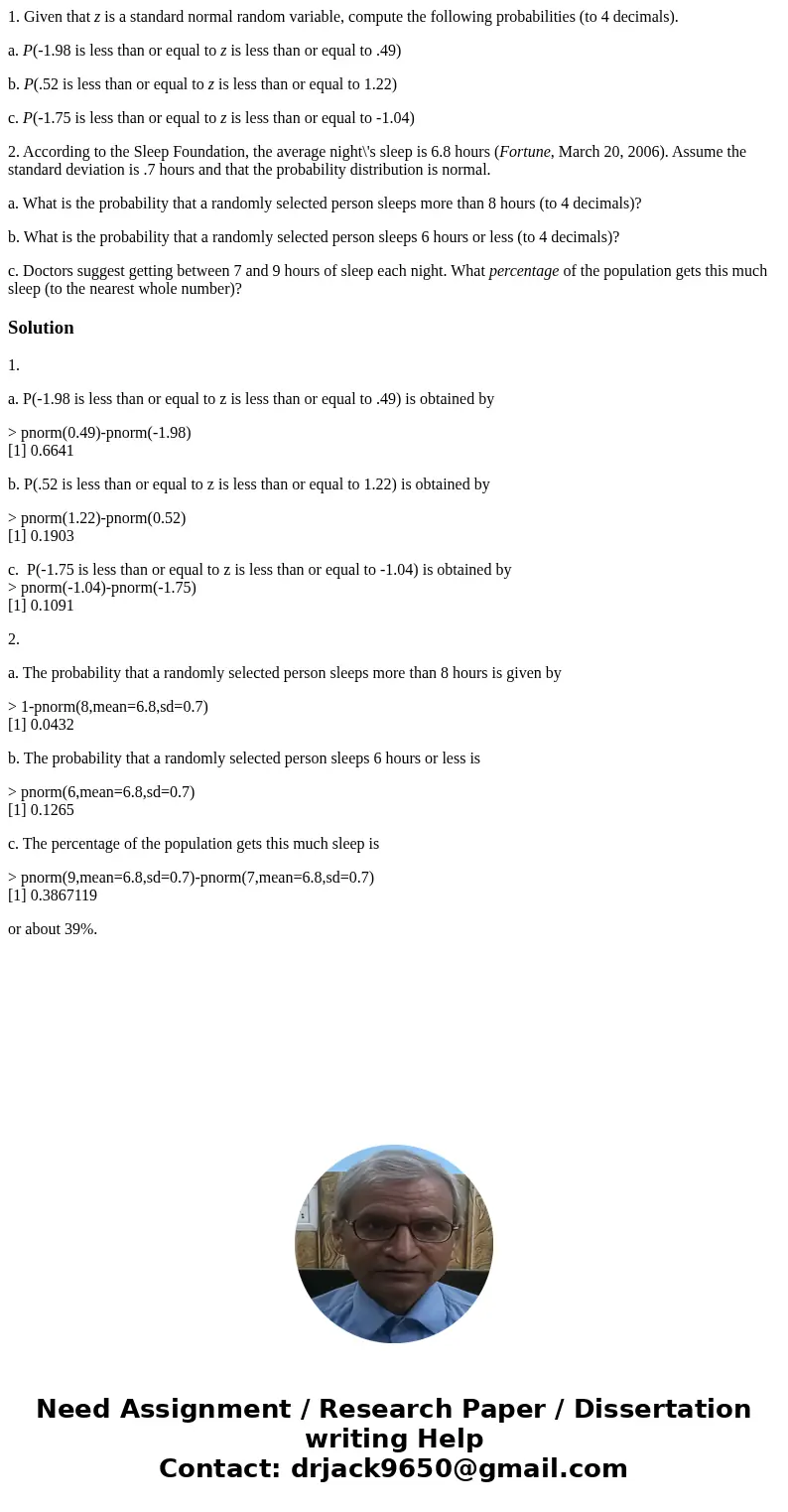1 Given that z is a standard normal random variable compute
1. Given that z is a standard normal random variable, compute the following probabilities (to 4 decimals).
a. P(-1.98 is less than or equal to z is less than or equal to .49)
b. P(.52 is less than or equal to z is less than or equal to 1.22)
c. P(-1.75 is less than or equal to z is less than or equal to -1.04)
2. According to the Sleep Foundation, the average night\'s sleep is 6.8 hours (Fortune, March 20, 2006). Assume the standard deviation is .7 hours and that the probability distribution is normal.
a. What is the probability that a randomly selected person sleeps more than 8 hours (to 4 decimals)?
b. What is the probability that a randomly selected person sleeps 6 hours or less (to 4 decimals)?
c. Doctors suggest getting between 7 and 9 hours of sleep each night. What percentage of the population gets this much sleep (to the nearest whole number)?
Solution
1.
a. P(-1.98 is less than or equal to z is less than or equal to .49) is obtained by
> pnorm(0.49)-pnorm(-1.98)
[1] 0.6641
b. P(.52 is less than or equal to z is less than or equal to 1.22) is obtained by
> pnorm(1.22)-pnorm(0.52)
[1] 0.1903
c. P(-1.75 is less than or equal to z is less than or equal to -1.04) is obtained by
> pnorm(-1.04)-pnorm(-1.75)
[1] 0.1091
2.
a. The probability that a randomly selected person sleeps more than 8 hours is given by
> 1-pnorm(8,mean=6.8,sd=0.7)
[1] 0.0432
b. The probability that a randomly selected person sleeps 6 hours or less is
> pnorm(6,mean=6.8,sd=0.7)
[1] 0.1265
c. The percentage of the population gets this much sleep is
> pnorm(9,mean=6.8,sd=0.7)-pnorm(7,mean=6.8,sd=0.7)
[1] 0.3867119
or about 39%.

 Homework Sourse
Homework Sourse